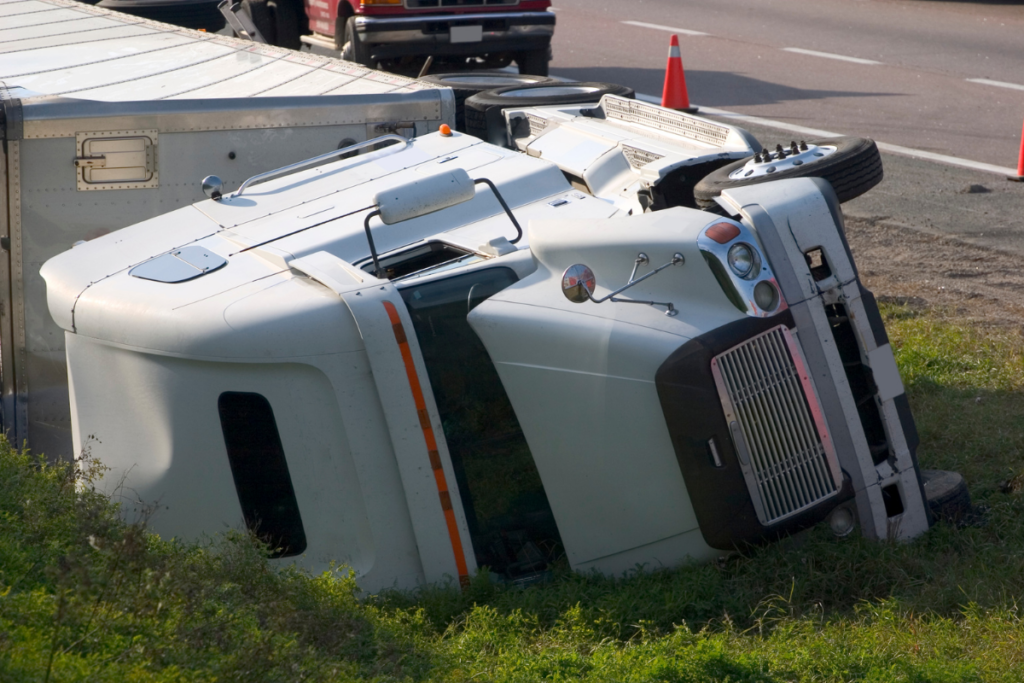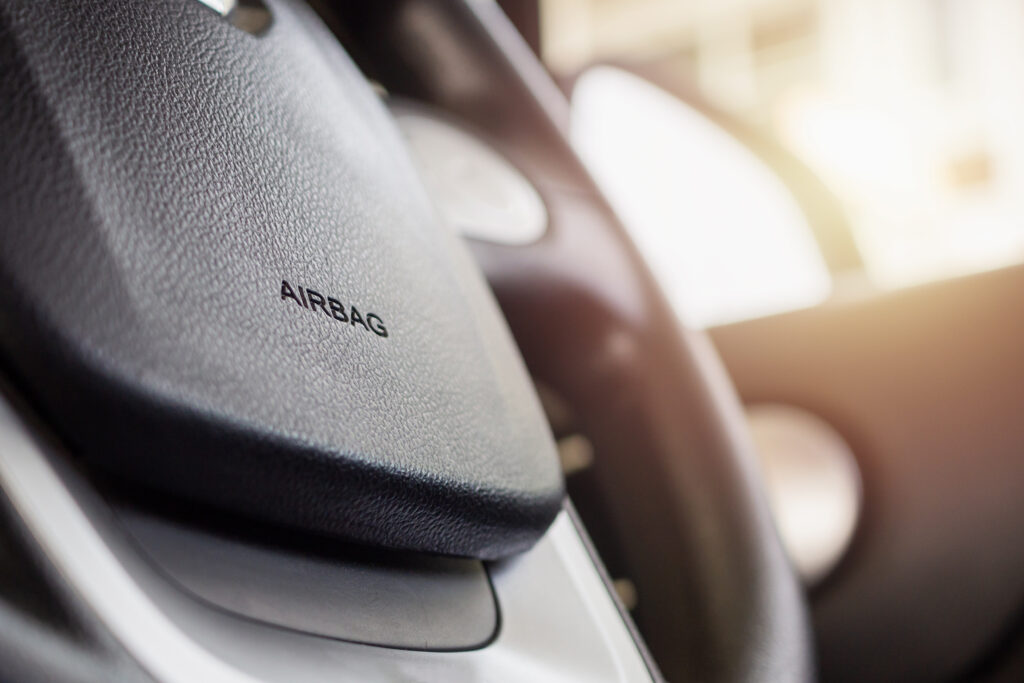Florida Truck Accident Lawyer
Everything changes when you get injured in a truck accident. Instead of doing the right thing, trucking companies and their insurers withhold the money you need to get your life back on track. Our Florida truck accident lawyers have the experience, skills, and resources to fight these wealthy corporations and win you the compensation you deserve. Call us today at (877) 245-6707 for a free consultation.
Home » Florida Personal Injury Lawyers » Florida Truck Accident Attorneys
If you’ve been injured in a truck accident in Florida, our nationally recognized Florida truck accident attorneys may be able to help you recover significant damages for your pain, suffering, and financial losses. Contact us today to schedule a free case review.
Why Is Farah & Farah the Right Choice After a Truck Accident in Florida?
We have been helping injured truck accident victims and grieving families win big against large trucking companies since 1979. We are a client-centric personal injury law firm in Florida that proudly puts clients first, and that isn’t just a cliche for us. It means we do whatever it takes to win you maximum damages and get you through this difficult time.
When you hire a talented Florida truck accident lawyer at any of our locations, you will get a caring, dedicated team that will get right to work for you, combining their skills, experiences, and resources to build the strongest case possible.
Our approach works. We have won over $2 billion in compensation for our clients, and our results are no accident. Experience makes all the difference. If you’ve been injured in a truck accident anywhere in Florida from Jacksonville to Fort Myers or anywhere between, we’ve got your back. Call one of our big truck attorneys now at (877) 245-6707 and put our experience to work for you.
A Law Firm That Gives Back
We have homegrown roots in Florida, and we proudly support worthy causes in the communities where we live and work because we care about people and feel a moral obligation to give back. As a law firm, we support worthy causes throughout the state and have even started a few of our own. For example:
- We provide scholarships to promising high school seniors through our Empowering Greatness program.
- We help provide hope and a new life for victims of human trafficking through Rethreaded, a mindful gift company.
- We proudly sponsor the Five Star Veterans Center in Jacksonville, a program that provides housing and services to homeless veterans from all over the United States.
- Our Safe Ride Home Program provides free rideshare and taxicab vouchers during holidays and events to curb drunk driving. We started this program in Jacksonville and now offer vouchers in St. Augustine, with plans to expand throughout the state.
- We support the Center for Independent Living throughout the state to provide job training and career development for people with disabilities. This program benefits many of our truck accident clients.
Our local attorneys also take it upon themselves to support worthy organizations in their communities, which we encourage.

Our Truck Accident Wins
Below are just a few examples of the truck accident verdicts and settlements we’ve won for our clients through caring, understanding, and hard work.
- $3.4 million verdict for back injuries sustained in a collision with a moving truck
- $2 million verdict for a man injured when he was rear-ended by a tractor-trailer
- $1.3 million wrongful death recovery after a semi struck a truck driver on a loading dock
- $1 million recovery in a federal tort claim for a woman struck by a postal truck
- $1 million recovery for an injured motorcyclist struck by a truck
- $760,000 wrongful death recovery after a dump truck collided with a motorcycle
$750,000 settlement for a Fort Myers woman struck by a tow truck that turned in front of her
What Damages Can I Claim After a Truck Accident?
When you’ve been injured in a truck accident in Florida, you may qualify for economic, non-economic, and punitive damages, depending on the details of your accident. Economic damages compensate for your monetary losses, such as lost wages, future lost earning capacity, medical bills, and property damage.
Non-economic damages compensate for the impacts on your life not easily measured in dollars and cents. This includes such losses as pain and suffering, emotional distress, loss of bodily functions, and disability.
Punitive damages in Florida are only available in specific cases when you have clear and convincing evidence of intentional misconduct or gross negligence, such as aggressive or drunk driving by the truck driver. Florida law doesn’t limit economic or non-economic damages, but punitive damages are limited to $500,000 or three times your total economic and non-economic damages, whichever is greater.
If you’re grieving the loss of a family member who died in a Florida truck accident, you also have the right to hold the trucking company accountable. You may be able to recover financial damages for your loved one’s pain and suffering, lost earnings, and final expenses. You can also pursue compensation for intangible losses, such as the loss of your family member’s companionship, support, and comfort.
What Factors Determine How Much Compensation I Receive?
Every case is unique, and there is no blanket formula for estimating compensation. The following factors generally have the highest impacts on compensation:
- The severity of your injuries – Generally speaking, the more severe your injuries, the higher your compensation.
- Who is liable – Multiple parties, including large companies, often share liability in truck accident cases, increasing the insurance coverage available. If a trucking company is liable, you will typically have access to higher coverage than if an individual driver is liable.
- Your earning capacity – The bigger the difference between your earning capacity before and after the accident, the more you can pursue for lost wages.
- Your medical costs – If you need surgery, extensive rehabilitation, or assistive devices, this can raise your medical costs astronomically, resulting in a higher case value. If your injuries result in long-term medical costs, those future expenses will factor into your compensation.
- Your prognosis – If you suffer from permanent disabilities or chronic pain, this can increase your compensation.
These are just a few considerations that factor into your compensation. When you schedule your free consultation with one of our skilled Florida truck accident lawyers, we will carefully consider the details of your accident and identify the most important factors that can determine how much compensation you could receive.
Who Is Liable for My Injuries in a Florida Truck Accident?
Establishing liability for a truck accident is more complex than for other car accidents because someone other than the driver typically owns a commercial truck. The driver may be acting as an employee. This often means the trucking company can be held liable for the driver’s mistakes.
Our big truck lawyers have also held trucking companies liable for their own mistakes. Trucking companies are required to follow state and federal safety regulations. When you hire our experienced semi truck accident lawyers in Florida, we will thoroughly investigate whether trucking companies and drivers violated any laws. Other potentially liable parties may include the following:
- A company or individual that loaded cargo incorrectly
- A negligent mechanic
- The manufacturer of defective truck parts
- Another motorist
- A government entity responsible for poor road conditions
What if I Am Partly To Blame for the Accident?
Insurance companies are vested in blaming you for the accident because it saves them money. If you’re more than 50 percent at fault, Florida’s comparative negligence law bars you from recovering compensation.
You can recover compensation if you’re 50 percent or less at fault. However, your compensation will be reduced in proportion to your fault. For example, if you’re 20 percent at fault and your damages are $1 million, your compensation will be reduced by 20 percent to $800,000.
Never admit fault to the truck driver, an insurance company, or the trucking company. If someone told you that you are at fault, contact one of our big truck lawyers immediately. It’s impossible to know who is at fault without a proper investigation.
The insurance company may have convinced you that the police report is proof of fault, but this isn’t true. Even if you received a ticket, it doesn’t prove fault. Police reports and tickets are not evidence, and they cannot be used as evidence of fault in court. We’ll look for hard evidence, such as forensic data, witness statements, and video footage to prove that you’re less than 51 percent at fault so you can recover damages.
How Long Do I Have To File a Truck Accident Claim in Florida?
The Florida statute of limitations for personal injury claims requires you to file your truck accident claim within two years of the accident date. While two years may seem like plenty of time, it’s important not to wait to contact an experienced Florida truck accident lawyer.
Why It’s Important to Act Fast After a Truck Accident
Winning damages in a truck accident lawsuit requires going against large trucking companies and insurance companies with significant resources to invest in fighting your claim. It takes strong evidence to defeat them. The strongest evidence is available during the immediate aftermath of your accident.
Early involvement in your case allows your big truck lawyer to talk to witnesses while their recall is still strong, analyze evidence while it is fresh, and subpoena important information from trucking companies before they make it go away.
Your attorney also needs time to analyze the evidence, retain expert witnesses, and review your medical records before your case can be filed. You will forfeit your right to pursue compensation if your case isn’t filed on time. Don’t let this happen to you. Call us today at (877) 245-6707 for a free case review.
What Happens After I Hire a Florida Truck Accident Lawyer?
When you hire a big truck lawyer at any of our Florida locations, our team will go right to work investigating the cause of your accident with the help of accident reconstructionists and other forensic analysts. This will help us identify all the liable parties.
We will also work with medical experts to review your medical records and determine the long-term effects of the accident on your quality of life, earning capacity, and future medical costs. We will then calculate your damages and demand the full amount from the at-fault parties.
If the at-fault parties refuse to settle for the amount you deserve, we will be fully prepared to take them to court.
How Long Will It Take To Settle My Truck Accident Case?
It can take several months to a year or longer to settle a truck accident case. The time frame depends on how hard the trucking company will fight to avoid paying fair compensation. If your case goes to trial, it could take longer.
If your case does have to go to court, you can count on the experience and preparation of our skilled Florida truck accident lawyers. We have a winning record in court. Contact us today for a free consultation.
Common Causes of Truck Accidents in Florida
According to the Florida Department of Transportation, driver error is responsible for of big truck accidents. Road conditions and vehicle defects are tied for the next most common cause.
The most common fatal truck crashes are rear-end collisions, head-on collisions, and pedestrian crashes. Rear-ending accidents are also the most common for disabling injuries. Truck accidents are most common in cloudy, rainy conditions and at nighttime when lighting is poor.
Driver Fatigue
Driver fatigue is more common in truck accidents than in other car accidents, and this isn’t surprising when you consider the long hours truck drivers typically work. The Federal Motor Carrier Safety Administration allows freight-carrying drivers to drive up to 11 hours daily, and their work shifts can be as long as 14 hours.
Drivers operating within 150 miles of their home base can exceed the 11-hour driving time limit as long as they return to the base within 14 hours.
Even with these long allowances, some companies set unrealistic schedules or poorly plan their routes, putting pressure on drivers to exceed these maximums. This increases the risk of fatigue even more.
Inadequate Training and Experience
Truck driving takes more skill than other vehicles and carries an added weight of responsibility. Trucking companies must verify that new truck drivers carry the required commercial driver’s license and have the skills to navigate the routes they are assigned.
Unfamiliarity With the Roadway
Newer truck drivers unfamiliar with Florida’s roadways should have the skills and preparation to navigate unfamiliar territory in heavy traffic. Florida roadways can be especially confusing in Florida’s largest metropolitan areas, such as Jacksonville, Orlando, and Tampa.
Distracted or Inattentive Driving
As many as 71 percent of big truck crashes occur when drivers are distracted by non-driving activities. Distractions can be internal or external. Internal distractions are activities a truck driver does inside the truck, such as texting, talking on a cell phone, eating, using a dispatching device, or playing with the radio.
External distractions are objects or activities outside the truck that take the driver’s attention off the road, such as billboards. Distracted driving in Florida can lead to severe high-speed collisions, including head-on collisions, T-bones, and rear endings. Often, the driver looks up just in time to see the hazard and attempts to brake, but it’s too late.
Drunk Driving
Drunk driving accidents are less common for commercial trucks than passenger cars, but they still happen.
According to the FMCSA, 3.6 percent of truck drivers involved in fatal truck crashes in 2017 had alcohol in their systems, and 2.5 percent had a blood alcohol content of more than 0.8 percent. The legal limit while driving a commercial motor vehicle in Florida is 0.4 percent.
Between 2019 and 2022, employers reported 9,951 drug and alcohol violations in Florida truck drivers, the third highest of any state. Nationwide, it is more common for a truck driver to be impaired by drugs than alcohol. In 2022, 69,668 truck drivers reportedly failed drug tests, while 1,570 failed alcohol screenings during this period.
Speeding
Trucks that exceed the speed limit take longer to slow down or stop, increasing the odds of colliding with other vehicles. Big trucks at high speeds are also harder to control if the truck driver must brake suddenly. Slamming on the brakes of a fast-moving big rig can create a skid, jackknife, or rollover, all of which are potentially devastating accidents.
A truck driver may speed even without exceeding the posted speed limit. Driving too fast for the conditions can be just as dangerous. Top-heavy trucks like cement mixers and some semi trucks can roll over from driving too fast around curves, taking a turn too fast, or driving too fast in wet or windy conditions.
Improper Cargo
A semi truck with a load that exceeds its capacity can place too much pressure on the tires, resulting in blow-out accidents, which can cause truck drivers to lose control of the vehicle and endanger other drivers on the road. Excessive loads also make handling more difficult, increasing the risk of skids and jackknife accidents.
Dump trucks, logging trucks, and other trucks with an open load can cause serious accidents if they fail to tie down their loads securely.
Mechanical Failures
The most common mechanical failures in trucks are brake failures and tire blowouts. When the brakes fail in a truck, it can quickly pick up speed and collide with slower or stopped traffic, often causing a chain-reaction accident. These accidents are preventable.
Truck drivers must perform post-trip inspections of their vehicles, including components prone to failure, such as brakes and tires. Trucking companies can be held liable for injuries if they allow trucks to remain in service with identified safety issues.
Where Do Most Trucking Accidents Happen in Florida?
Hillsborough County is tied with Miami-Dade County for the highest number of truck accident fatalities in the state in 2021, at 24 fatalities. Tampa is home to Interstates 4 and 275—both of which are major trucking routes.
The counties with the most fatalities are located along Florida’s major interstates. These areas include large metropolitan areas like Jacksonville and Orlando. However, counties of all sizes along these corridors have seen significant numbers of truck accident fatalities, including Melbourne, Ocala, St. Augustine, Gainesville, and Fort Myers.
These statistics are consistent with an engineering study that found Interstate 4 is the most deadly interstate in the United States, and Interstate 95 is the eighth most deadly. Florida’s interstates weren’t the only highways in the state to make this list. The following highways also made the list:
- U.S. Highway 192 ranks third, with the most dangerous area around Kissimmee.
- U.S. 92 ranks fifth, with the most dangerous area around Tampa.
U.S. 1 ranks 29th, running down the Florida coastline through Daytona Beach, St. Augustine, and Melbourne.
Common Injuries After a Truck Accident
Tractor-trailers can weigh as much as 80,000 pounds fully loaded, which is 20 times the weight of most cars. Thus, truck accident injuries can be particularly catastrophic. Some of the injuries we have seen after a truck accident include the following:
- Severe burn injuries resulting from explosions during accidents
- Head trauma, including skull fractures and traumatic brain injuries
- Severe neck, back, and spinal cord injuries that result in paralysis, bulging discs, or severe chronic pain
- Crushed bones or multiple fractures
- Internal bleeding and organ damage from broken bones or crushing injuries
What Should I Do After a Truck Accident?
After a truck accident in Florida, your chief priority is your health, and your second priority is your case. The following steps will help you protect both:
- Follow through with our medical treatment. Doing so will help you maximize your physical recovery and help your attorney prove the severity of your injuries.
- Don’t admit fault or apologize for the accident.
- Save the names and contact information of eyewitnesses or other parties involved in the accident.
- Don’t sign any documents from the insurance company or agree to a settlement without an attorney present.
- Contact an experienced semi truck accident attorney in Florida as soon as possible.
Contact Us Now To Get Started for Free
When you choose one of our trusted Florida truck accident lawyers, you won’t have to do anything except focus on your medical treatment. We will connect you with the best doctors in the state, deal with the trucking and insurance companies, and gather the evidence needed to prove your case. If we don’t win, you don’t pay.
The initial consultation is free. To get started, call our award-winning Florida truck accident lawyers today at (877) 245-6707.

Why Is Farah & Farah the Right Choice After a Truck Accident in Florida?
What Damages Can I Claim After a Truck Accident?
Who Is Liable for My Injuries in a Florida Truck Accident?
How Long Do I Have To File a Truck Accident Claim in Florida?
How Long Will It Take To Settle My Truck Accident Case?
Common Causes of Truck Accidents in Florida
Where Do Most Trucking Accidents Happen in Florida?
Common Injuries After a Truck Accident
What Should I Do After a Truck Accident?
free case review
Client Testimonials


YOU AND YOUR FAMILY

Injured?
Related Blogs













